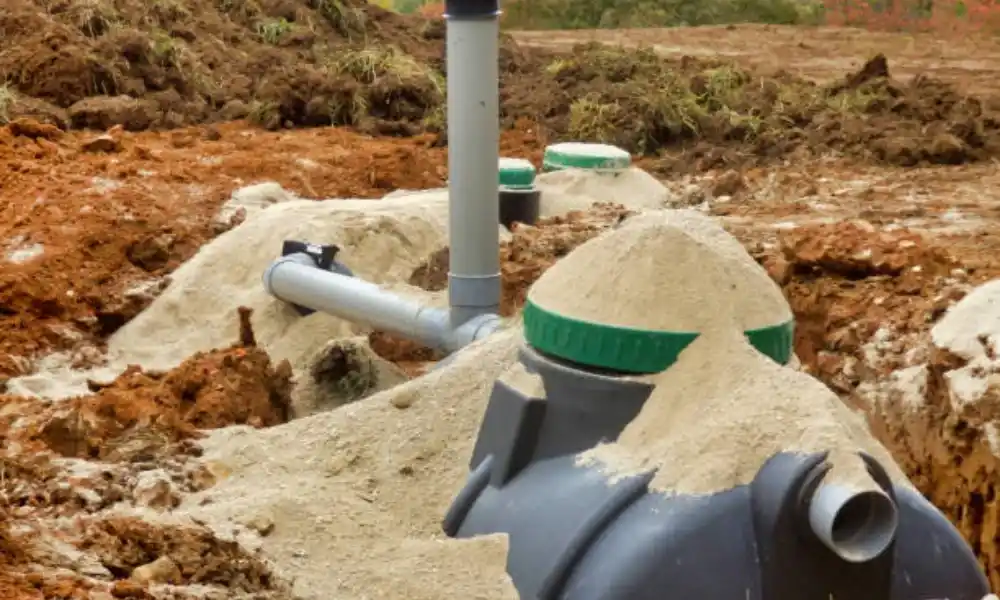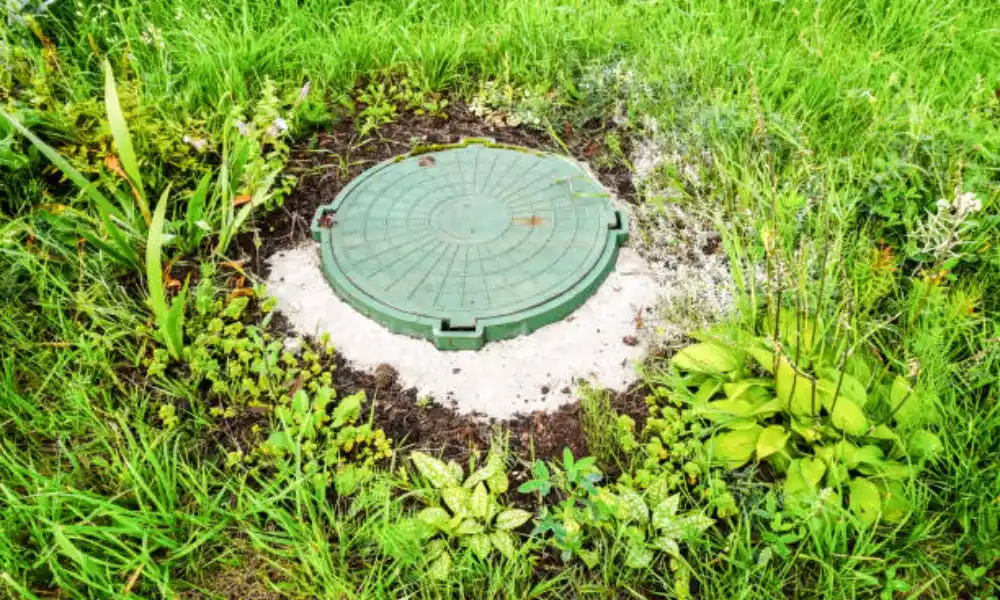
If you live in a home with a septic system, you’ve probably asked yourself this at least once: Can you have a garbage disposal with a septic tank? It is a typical concern among homeowners, particularly those who enjoy the ease of crushing food waste directly into the sink. However, when your plumbing leads to a septic tank rather than a public sewer, the situation becomes a bit complicated.
Let’s break down what really happens when food waste meets septic, what it means for your system, and whether a garbage disposal with septic tank is a match made in heaven—or a recipe for disaster.
Can You Have a Garbage Disposal With a Septic Tank?
Why This Question Matters for Homeowners With Septic Systems
Septic systems are fragile ecosystems. They use natural microbes to efficiently break down solid waste. When you add food waste to the mix, it can affect how effectively the system functions. Understanding the balance between convenience and care is critical for anybody with a septic system.
What Happens When Food Waste Enters a Septic Tank
When you grind food using a garbage disposal with septic tank plumbing, the leftovers go directly into your septic tank. Food, unlike human waste or toilet paper, takes longer to decompose. This can slow down decomposition, increase solid load, and perhaps overwhelm the system. What was the result? More upkeep means less peace of mind.
How Garbage Disposals Affect Septic Systems
Increase in Solid Waste Volume
Food leftovers increase the amount of solid waste in your septic tank. While the system was designed to handle toilet waste, kitchen garbage is a different story. Using a septic tank for food disposal adds extra solids, which take longer to decompose.
Impact on Bacterial Balance and Breakdown Process
A functional septic system relies on microorganisms to decompose waste. Some meals, particularly oily or acidic products, might upset this equilibrium. When the bacteria population is depleted, waste does not degrade correctly, resulting in blockages and smells.
Risk of Clogs, Sludge Buildup, and More Frequent Pumping
Too much food waste might cause thicker sludge at the bottom of your tank. Over time, this results in more frequent pumping, a higher danger of backups, and costlier repairs. So, while the answer to the question” Can you have a garbage disposal with a septic tank ?” is theoretically true, there are some issues.

Pros and Cons of Using a Garbage Disposal With a Septic Tank
Advantages (Convenience, Hygiene)
It’s difficult to deny the convenience. There is no need to scrape dishes into the garbage. Simply flip a switch, and food vanishes. It can also assist to eliminate kitchen smells and maintain hygiene, particularly when handling raw waste.
Disadvantages (Maintenance, Cost, System Strain)
On the flip side, it puts additional strain on your septic system. More solids need more pumping, which might cause harm if your system is unable to cope. What about repairs? They are rarely inexpensive.
Best Practices for Septic Tank Food Disposal
Use the Garbage Disposal Sparingly
Moderation is crucial. Treat your septic tank food disposal as a tool, not a garbage can. The less you use it, the better your septic system will function.
Only Dispose of Soft, Biodegradable Scraps
Stick to products that are soft and simple to break down, such as fruit peels or cooked vegetables. Rice, bones, and hard items are off-limits.
Avoid Oils, Fats, Coffee Grounds, and Fibrous Waste
Grease and fats solidify and can block drains. Coffee grinds and stringy vegetables, such as celery, can wrap around blades or clog pipes. These should never enter a septic tank food disposal setup.
Always Run Cold Water During and After Use
Cold water helps solidify oil, making it easier to cut and flush. It also aids in pushing trash fully through the pipes.
Septic-Safe Garbage Disposal Options
What Makes a Disposal Septic-Friendly
Some disposals are specifically intended for septic systems. These types grind food finer and typically include bio-chambers or enzyme boosters.
Features to Look For (e.g., Enzyme Injection Systems)
Look for characteristics such as multi-stage grinding, silent operation, and, most significantly, enzyme injection. These technologies assist to break down food waste before it enters the tank.
Top Models Designed for Septic Use
InSinkErator and Waste King are two brands that provide septic-friendly units. Their septic-assist versions are intended to minimize impact while retaining performance.
Alternative Ways to Handle Kitchen Waste
Composting as a Septic-Safe Option
Composting is the gold standard. It keeps food waste out of your septic system while converting leftovers into horticultural riches. A win-win.
Scrape Food Waste Into Trash Before Dishwashing
Do not wash food down the drain. Scrape dishes properly before washing to avoid putting excessive pressure on your septic system.
Use a Sink Strainer to Catch Solids
A simple mesh strainer can keep food bits from going down the drain undetected. It’s an inexpensive and effective instrument.
Signs Your Septic System Is Overloaded
Slow Drains and Backups
If your sink or shower drains more slowly than normal, it might indicate that your septic system is straining. Do not ignore it.
Foul Odors Around the Drain Field
Unpleasant odors in your yard may indicate that your system is overloaded or not processing waste adequately.
More Frequent Pumping Needed
If you’ve discovered that the tank requires more frequent pumping since installing waste disposal, it may be time to reconsider its use.
Frequently Asked Questions
Do garbage disposals shorten the life of a septic tank?
Yes, particularly if used repeatedly. They add solids, impede bacterial digestion, and raise maintenance requirements.
Is it illegal to have a garbage disposal with a septic system?
No, this is not unlawful. However, local plumbing codes may encourage or require certain types of units. Always check first.
How often should I pump my tank if I use a disposal?
Approximately every 1-3 years. With disposal, prepare for the shorter end of that range—or even annually if used often.
Quick & Reliable Garbage Disposal Installation in Antioch
Considering upgrading to a septic-safe garbage disposal? Perhaps you need advice on whether to install one at all. If you reside in Antioch, you are in luck.
Wally Blanton is your go-to expert for plumbing and garbage disposal with septic tank services in the area. With years of hands-on expertise, he can assist you in selecting the appropriate unit, correctly installing it, and ensuring that your septic system remains healthy for years to come.
To schedule a consultation or installation service, contact Wally Blanton now.
